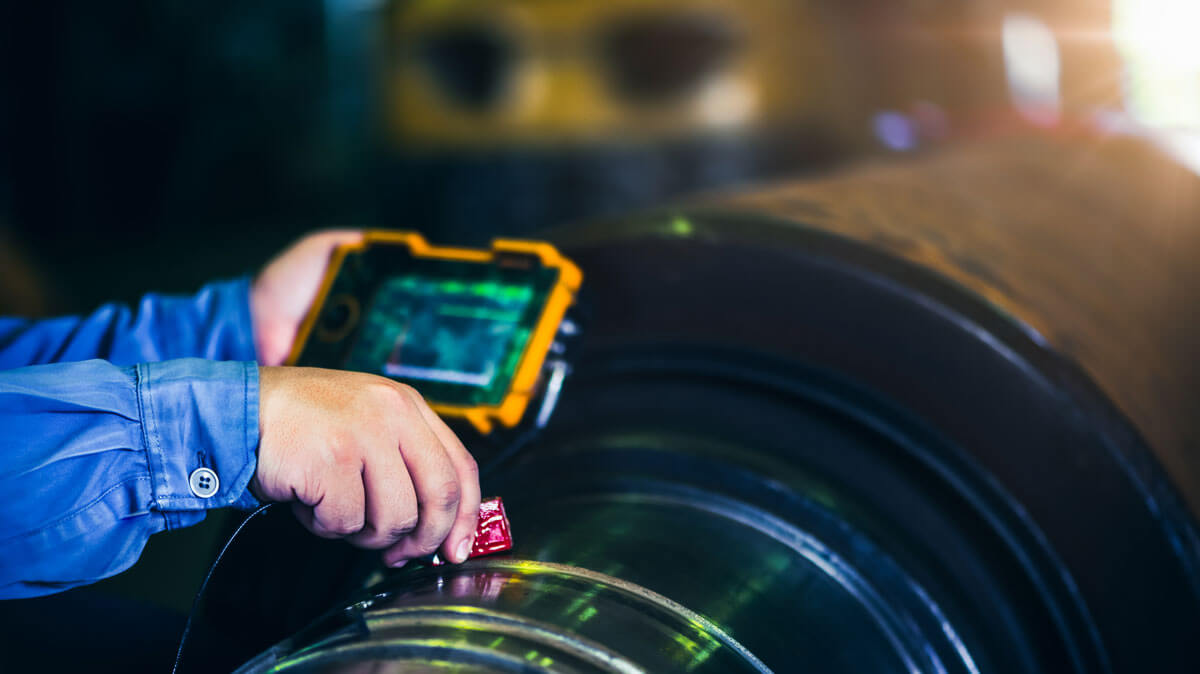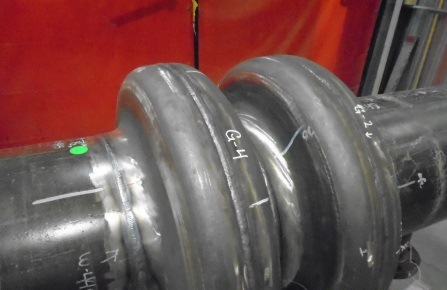How Regular Welding Inspection Madison Can Save You Money And Time
How Regular Welding Inspection Madison Can Save You Money And Time
Blog Article
The Importance of Thorough Welding Examination in Industrial Applications
In the world of commercial applications, the value of precise welding inspection can not be overemphasized. It plays an important role in guaranteeing the architectural honesty and long life of welded parts. Advanced non-destructive screening strategies permit the very early discovery of potential problems, such as fractures and incomplete combination, which, if left unattended, might bring about disastrous failings. Furthermore, adherence to rigorous industry requirements not only assures high quality however also develops client self-confidence. As we discover the diverse benefits of persistent welding inspections, one need to think about the broader ramifications on security, dependability, and cost-effectiveness in industrial operations.
Enhancing Architectural Honesty
When it comes to welding assessment in commercial applications, improving structural stability is critical. The key goal of welding assessment is to guarantee that the welds are capable of bearing the expected stress and anxieties and loads they will certainly run into in solution.
The significance of keeping structural honesty in welded frameworks can not be overemphasized. Poorly carried out welds can bring about tragic failures, resulting in pricey repair services, downtime, and also endangerment of human lives. Therefore, examiners play an important role in the lifecycle of commercial parts, providing assurance that the welding procedure provides the desired toughness and durability.
Additionally, progressed innovations, such as phased range ultrasonic screening and digital radiography, offer boosted capabilities in spotting potential weaknesses, permitting restorative measures prior to problems rise. By prioritizing the honesty of welds through precise evaluation, markets can make certain functional efficiency and extend the long life of their facilities.
Determining Welding Problems
Determining welding flaws is an important facet of guaranteeing the security and dependability of bonded frameworks. These flaws can jeopardize the integrity of the entire setting up and, if left unaddressed, might result in devastating failings. Usual welding defects consist of porosity, fractures, insufficient fusion, and undercutting. Each of these defects arises from certain causes, such as inappropriate welding techniques, contamination, or insufficient warm control.

Competent assessors use both visual evaluation and advanced non-destructive testing (NDT) approaches, such as ultrasonic or radiographic screening, to detect these defects. The prompt recognition and rectification of welding defects are imperative to maintain the structural stability and durability of industrial elements.
Making Sure Compliance Standards
Preserving the integrity of bonded structures expands beyond recognizing issues; it calls for adherence to rigorous compliance criteria. Conformity with established criteria, such as those supplied by the American Welding Culture (AWS) and the International Organization for Standardization (ISO), ensures that welds fulfill minimal safety and quality needs. These standards encompass a large range of standards, consisting of material requirements, welding procedures, and qualification of welders. Adherence to these requirements is crucial to stop structural failings, which might bring about catastrophic repercussions in commercial applications.
Regular audits and evaluations are important in confirming conformity. Inspectors need to possess a thorough understanding of the pertinent standards and be experienced at utilizing numerous non-destructive testing (NDT) approaches to evaluate weld high quality. By ensuring that welding methods align with compliance criteria, companies alleviate the risk of non-conformity, which can result in lawful liabilities and security threats.
Furthermore, click over here now keeping compliance not only safeguards architectural honesty but likewise boosts a company's credibility in the sector. Clients and stakeholders are more probable to trust fund firms that continually demonstrate a commitment to high quality and safety and security through extensive conformity. Hence, ensuring compliance requirements is a critical component in the successful application of welding in commercial applications.
Lowering Upkeep Prices

The application of advanced non-destructive screening (NDT) techniques, including ultrasonic, radiographic, and magnetic bit evaluations, boosts the capability to detect subsurface imperfections without jeopardizing the architectural stability of parts. By utilizing these strategies, markets can significantly prolong the service life of their devices, reducing downtime and the connected economic concern of upkeep activities.
In addition, a robust welding assessment routine supports the optimization of maintenance timetables, shifting from responsive to anticipating maintenance methods. This aggressive method not just curtails unforeseen failings but likewise simplifies resource allotment, making certain that maintenance efforts are concentrated and reliable. Ultimately, the investment in extensive welding examination is offset by the considerable financial savings understood through reduced maintenance needs, contributing favorably to the overall operational effectiveness of commercial ventures.
Improving Precaution
Although security is a review vital problem in commercial operations, achieving ideal security requirements needs a committed concentrate on the top quality and reliability of bonded frameworks. Welding inspection plays a crucial role in this context, as it guarantees that all joints and connections satisfy strict security criteria. Comprehensive evaluations help identify defects such as cracks, porosity, or incomplete fusion that could endanger architectural stability. Such flaws, if left unaddressed, position significant risks, possibly bring about disastrous failings.
Methods like ultrasonic testing, radiographic screening, and magnetic fragment evaluation enable for thorough examination without damaging the framework. Implementing a important source robust high quality control system that consists of normal training for welders and examiners makes sure adherence to developed safety and security standards.
Lastly, promoting a culture of safety within the company highlights the importance of extensive welding inspections. Motivating open communication and partnership among designers, examiners, and welders contributes to a shared commitment to safety and security quality. Welding Inspection Madison. In doing so, industries can protect their operations, safeguard personnel, and preserve public trust

Conclusion
Comprehensive welding inspection is essential in industrial applications, substantially improving structural stability and reliability. Eventually, the diligent implementation of welding inspections plays a vital role in keeping operational performance and safety in industrial setups.
As we explore the diverse advantages of diligent welding assessments, one must think about the more comprehensive implications on security, integrity, and cost-effectiveness in commercial operations.
The primary objective of welding examination is to guarantee that the welds are capable of birthing the anticipated loads and tensions they will certainly encounter in service. Efficient welding examination plays an integral role in reducing these costs by making sure the honesty and long life of welds, thereby mitigating the risk of premature failures.Extensive welding assessment is crucial in industrial applications, significantly enhancing structural integrity and reliability. Ultimately, the attentive execution of welding inspections plays a crucial role in maintaining functional performance and safety and security in commercial setups.
Report this page